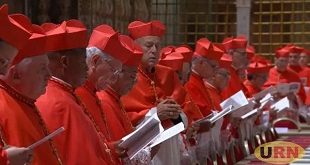
Jerusalem, Israel | Xinhua | Benjamin Netanyahu, tasked by Israeli President Isaac Herzog to form a new government on Sunday, is now squarely poised to take office for a record-breaking sixth time as prime minister, and bring the country back to the rule of rightists.
“It will be a stable, successful, and responsible government for all the people of Israel,” Netanyahu said in a speech in the presence of Herzog at the mandate event, adding “we are brothers and we will live together side by side.”
Netanyahu’s 12-year stretch as Israeli prime minister ended in June 2021 when Yair Lapid, leader of the centrist party Yesh Atid, successfully formed a new government. In the latest Israeli election two weeks ago, Netanyahu’s right-wing Likud party won 32 seats and he was recommended by 64 members of the 120-seat Israeli parliament, or Knesset, to be qualified to form a government.
The victory of Religious Zionism, a coalition of three far-right parties with anti-Arab, ultra-religious, and Jewish supremacist positions, can be largely credited for the absolute majority won by the Netanyahu bloc in the latest election. Growing from six seats in the 2021 election to 14 this year, it has now become the third-largest parliamentary party after Likud and Yesh Atid, and the second-largest faction in Netanyahu’s bloc.
Religious Zionism is believed to have gained strong support from Jewish Israelis between the ages of 18 and 24, as statistics have shown the percentage of voters in this age group was more than twice as many as those voting for either the Labor Party or Meretz, the two left-wing parties. Meretz was even ousted from the Knesset for the first time in history because it fell short of the 3.25 percent electoral threshold.
The popularity of right-wing parties among young Israelis may reflect a demographic shift throughout the years: religious Israelis vote overwhelmingly for the right, and religious families typically have more children than nonreligious families.
Analysts also attribute the rightists’ rise to the growing nationalism in Jewish society as a whole. They believe Netanyahu may soon form the “most far-right wing, ultra-nationalist, and religious coalition” in Israel’s history.
“The radicalization was already happening under Netanyahu’s own party, the Likud, but the extreme right party is much more religious and much, much more fundamentalist and nationalist,” said Gayil Talshir, senior lecturer of political science at the Hebrew University of Jerusalem.
Israel’s judicial system, policies on minorities, state-religion relations, and foreign policy will be different when the country is ruled by hardliners from the new coalition, she said.
Among the hardliners are Bezalel Smotrich and Itamar Ben-Gvir, two leaders of the far-right Religious Zionism. They hold anti-Arab views and are opposed to making any concessions to the Palestinians. Both are in support of annexing territories in the West Bank which Israel occupied in the 1967 Middle East War.
Under Israel’s law, Netanyahu has 28 days to form a new government and could be given an extension of 14 days if needed.
Many Israelis worry that when Netanyahu forms a new government, far-right politicians may be appointed to important positions. In particular, Ben-Gvir has pressed Netanyahu for his appointment as public security minister, a position with control over the police.
Many Arab citizens of Israel will feel “disappointment, frustration and threat” after the new makeup of the government, said Michael Milshtein, senior researcher at the Institute for Policy and Strategy, Reichman University.
However, Milshtein, also head of the Palestinian Studies Forum at the Moshe Dayan Center for Middle Eastern and African Studies at Tel Aviv University, believes there is a possibility that Netanyahu will try to integrate centrist elements into his coalition “in order to soften criticism or concerns from home and abroad, especially against the expected integration and appointment of religious Zionist elements to key positions.”
 The Independent Uganda: You get the Truth we Pay the Price
The Independent Uganda: You get the Truth we Pay the Price



